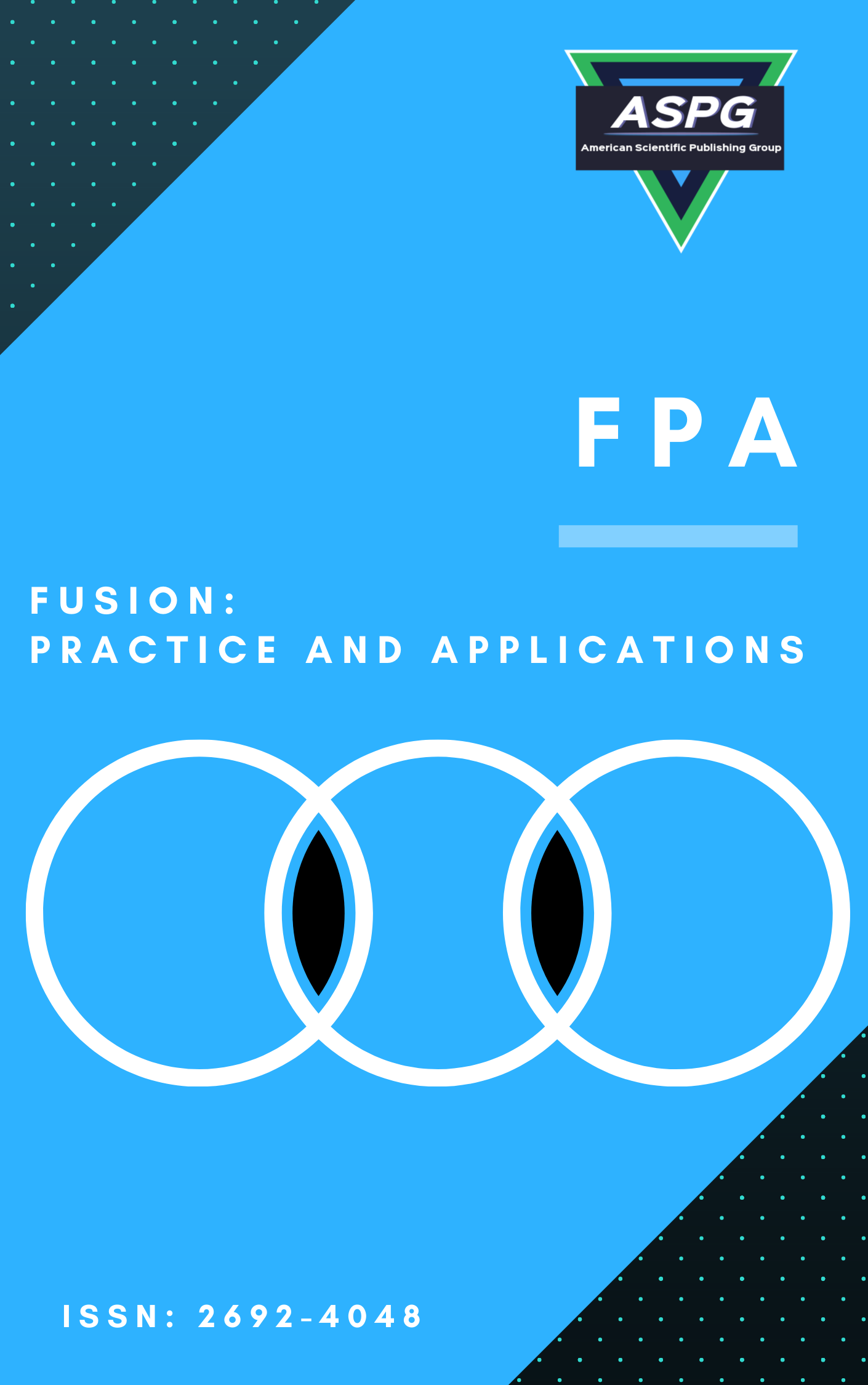

Volume 17 , Issue 2 , PP: 98-110, 2025 | Cite this article as | XML | Html | PDF | Full Length Article
Khalid Alleihaibi 1 *
Doi: https://doi.org/10.54216/FPA.170208
Recently, Federated Learning (FL) has promptly gained aggregate interest owing to its emphasis on the data privacy of the user. As a privacy-preserving distributed learning algorithm, FL enables multiple parties to construct machine learning (ML) algorithms without exposing sensitive information. The distributed computation of FL may lead to drawn-out learning and constrained communication processes, which necessitate client-server communication cost optimization. The two hyperparameters that have a considerable effect on the FL performance are the number of local training passes and the ratio of chosen clients. Owing to training preference across different applications, it is challenging for the FL practitioner to manually choose these hyperparameters. Even though FL has resolved the problem of collaboration without compromising privacy, it has a transmission overhead because of repetitive model updating during training. Various researchers have introduced transmission-effective FL techniques for addressing these issues, but sufficient solutions are still lacking in cases where parties are in charge of data features. Therefore, this study develops an Optimization of Federated Learning Communication Costs through the Implementation of the Cheetah Optimization Algorithm (OFLCC-COA) technique. The OFLCC-COA technique is mainly applied for effectually optimizing the communication process in the FL to minimize the data transmission cost with the guarantee of enhanced model accuracy. The OFLCC-COA technique enhances the robust performance in unsteady network environment via the transmission of score values instead of large weights. Besides, the OFLCC-COA technique improves the communication efficiency of the network by transforming the form of data that clients send to servers. The performance analysis of the OFLCC-COA model occurs utilizing different performance measures. The simulation outcomes indicated that the OFLCC-COA model obtains superior performances over other methods in terms of distinct metrics
Federated Learning , Cheetah Optimization Algorithm , Communication Cost , Machine Learning , Elman Neural Network
[1] Rahimi, M.M., Bhatti, H.I., Park, Y., Kousar, H., Kim, D.Y. and Moon, J., 2024. EvoFed: Leveraging Evolutionary Strategies for Communication-Efficient Federated Learning. Advances in Neural Information Processing Systems, 36.
[2] Morell, J.Á., Dahi, Z.A., Chicano, F., Luque, G. and Alba, E., 2022, April. Optimising Communication Overhead in Federated Learning Using NSGA-II. In International Conference on the Applications of Evolutionary Computation (Part of EvoStar) (pp. 317-333). Cham: Springer International Publishing.
[3] Li, J. and Huang, H., 2024. Resolving the Tug-of-War: A Separation of Communication and Learning in Federated Learning. Advances in Neural Information Processing Systems, 36.
[4] kumar Agrawal, N., Khan, R., Rani, P., Srivastava, A.K., Sharma, R., Yadav, K., Alkhayyat, A. and Aledaily, A.N., 2023. TFL-IHOA: Three-Layer Federated Learning Based Intelligent Hybrid Optimization Algorithm for Internet of Vehicles. IEEE Transactions on Consumer Electronics.
[5] Chen, H., Huang, S., Zhang, D., Xiao, M., Skoglund, M. and Poor, H.V., 2022. Federated learning over wireless IoT networks with optimized communication and resources. IEEE Internet of Things Journal, 9(17), pp.16592-16605.
[6] Deng, Y., Lyu, F., Xia, T., Zhou, Y., Zhang, Y., Ren, J. and Yang, Y., 2024. A Communication-Efficient Hierarchical Federated Learning Framework via Shaping Data Distribution at Edge. IEEE/ACM Transactions on Networking.
[7] Wang, Q., Xu, S., Xu, R. and Li, D., 2023. An efficient federated learning framework deployed in resource-constrained IoV: User selection and learning time optimization schemes. China Communications, 20(12), pp.111-130.
[8] Zhao, C., Gao, Z., Wang, Q., Xiao, K., Mo, Z. and Deen, M.J., 2023. FedSup: A communication-efficient federated learning fatigue driving behaviors supervision approach. Future Generation Computer Systems, 138, pp.52-60.
[9] Gad, G., Farrag, A., Aboulfotouh, A., Bedda, K., Fadlullah, Z.M. and Fouda, M.M., 2024. Joint Self-Organizing Maps and Knowledge Distillation-Based Communication-Efficient Federated Learning for Resource-Constrained UAV-IoT Systems. IEEE Internet of Things Journal.
[10] Nikolaidis, F., Symeonides, M. and Trihinas, D., 2023. Towards Efficient Resource Allocation for Federated Learning in Virtualized Managed Environments. Future Internet, 15(8), p.261.
[11] Li, X., Zhao, H. and Deng, W., 2024. IOFL: Intelligent Optimization-Based Federated Learning for Non-IID Data. IEEE Internet of Things Journal.
[12] Nguyen, V.D., Chatzinotas, S., Ottersten, B. and Duong, T.Q., 2022. FedFog: Network-aware optimization of federated learning over wireless fog-cloud systems. IEEE Transactions on Wireless Communications, 21(10), pp.8581-8599.
[13] Elfaki, M.A., Alshahrani, H.M., Mahmood, K., Alabdan, R., Alymani, M., Alshahrani, H., Motwakel, A. and Alneil, A.A., 2023. Metaheuristics Algorithm-Based Minimization of Communication Costs in Federated Learning. IEEE Access.
[14] Li, Y., He, Z., Gu, X., Xu, H. and Ren, S., 2024. AFedAvg: communication-efficient federated learning aggregation with adaptive communication frequency and gradient sparse. Journal of Experimental & Theoretical Artificial Intelligence, 36(1), pp.47-69.
[15] Chen, H., Huang, S., Zhang, D., Xiao, M., Skoglund, M. and Poor, H.V., 2022. Federated learning over wireless IoT networks with optimized communication and resources. IEEE Internet of Things Journal, 9(17), pp.16592-16605.
[16] Chai, Z.Y., Yang, C.D. and Li, Y.L., 2023. Communication efficiency optimization in federated learning based on multi-objective evolutionary algorithm. Evolutionary Intelligence, 16(3), pp.1033-1044.
[17] Gupta, R. and Alam, T., 2024. Vehicular communication using federated learning empowered Chimp optimization (FLECO) algorithm. Multimedia Tools and Applications, pp.1-36.
[18] Zhang, L., Wu, S., Xu, H., Liu, Q., Hong, C.S. and Han, Z., 2023. Optimizing Tradeoff Between Learning Speed and Cost for Federated Learning-Enabled Industrial IoT. IEEE Internet of Things Journal.
[19] Park, S., Suh, Y. and Lee, J., 2021. FedPSO: Federated learning using particle swarm optimization to reduce communication costs. Sensors, 21(2), p.600.
[20] Sultan, H.M., Mossa, M.A. and Abdelaziz, A.Y., 2024. Parameter Identification of Solar Cell Mathematical Models Using Metaheuristic Algorithms. In Advances in Solar Photovoltaic Energy Systems. IntechOpen.
[21] Hananto, A.L., Fauzi, A., Suhara, A., Davison, I., Spraggon, M., Herawan, S.G., Samuel, O.D., Yusuf, A.A., Idris, M. and Veza, I., 2023. Elman and cascade neural networks with conjugate gradient Polak-ribière restarts to predict diesel engine performance and emissions fueled by butanol as sustainable biofuel. Results in Engineering, 19, p.101334.